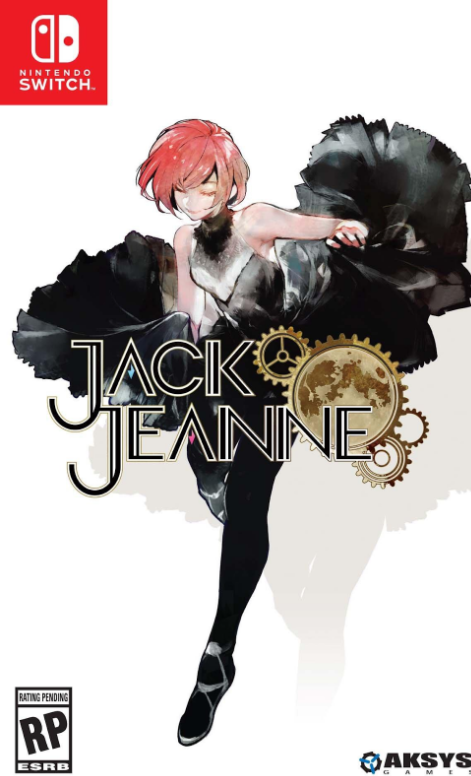
Not many people know this, but visual novels, in spite of their seemingly limited gameplay and interface, are actually a more versatile medium than they’re usually given credit for. This is pretty common knowledge in Japan, where the medium of visual novels has been around since the eighties, but North America only ever had them through hard to find fan translations, with no official releases until the 2010s. But even with the genre’s renaissance in the US and people learning what they can be capable of, certain types of gamers are quick to dismiss visual novels as nothing more than either moe waifu porn games or digital picture books. Games such as Ace Attorney, Steins;Gate, Digimon Survive, AI: The Somnium Files, and everything in Visual Arts/Key’s library (Clannad, Air, Kanon, Little Busters, and so on) disprove this, but would you believe me if I told you that there’s such thing as a visual novel that also has rhythm game elements and was the brainchild of one Sui Ishida, the man who created Tokyo Ghoul and Choujin X? Ladies, gentleman, and everyone in-between, I introduce to you Jack Jeanne, one of many visual novels brought to the US by Aksys Games. I remember first seeing ads for the game in the Nintendo eShop while browsing through it, and the premise did intrigue me, but I initially had a bit of a hard time getting a hard copy. It took my dad showing me a random game store while on our trip to New York for me to find a copy, and I gotta say, I have him to thank for this, because Jack Jeanne is not only one of the best otome games in existence, it’s one of the best, most immersive visual novels period, barring a few flaws preventing it from achieving true greatness.

Now, the premise itself isn’t really anything special: Ever since she was a child, Kisa Tachibana has always looked up to her older brother Tsuki, and after watching him perform in a play, she decides she wants to get into the art of theater acting. Tsuki once attended the famous Univeil Theater Academy, so Kisa hopes to enroll there as well. But her hopes are dashed when she learns that Univeil is an all-boys school. To make things worse, after graduation, Tsuki disappeared without a trace, and Kisa’s family is experiencing financial trouble, so she figures she has to give up on her dream and take up a job to make ends meet. That is, until she was found by the principal of Univeil Theater Academy, who recognized her as the talented Tachibana Tsuki’s sister, and soon enlisted her to be enrolled into the school to change the age old tradition of the theater academy, and accomplish her dream…but under a few conditions: she has to aim to be the lead role in all the plays throughout the year, to earn the trust of the students, and to never let anyone in the school learn that she is a girl, which includes not telling others that she is related to the famed Tsuki Tachibana. Since this is an otome game, you can choose one out of six romantic interests: The energetic, happy-go-lucky Suzu Orimaki; Kisa’s sheepish but supportive childhood friend Soshiro Yonaga; the grumpy, easily annoyed singer Mitsuki Shirota; the dashing dancer Sarafumi Takashina; the stoic but kind-hearted Kai Mutsumi, and the eccentric, loud, and dare I say theatrical playwright Kokuto Neji.

I admit I haven’t played much otome games, and the only one I’ve really played to completion is Code;Realize. But otome games, like some visual novels I have played, usually have a choice-based system, where choosing certain responses to questions or answering some characters’ questions positively, or pursuing said character in general, will lock you into their route should you decide to go after them. While this is somewhat true in Jack Jeanne, the game adds a little more to it. In-game, it’s not enough to simply pursue your desired character or choose responses to their questions, there’s a stat raising system where if you choose to raise one out of six of Kisa’s skills (Spirit, Insight, Voice, Charm, Drama, and Dance), your chances of getting into a character’s route will increase. Making this easier is that each love interest’s name is color coded and correspond with the stat that the player is required to focus on if you want to lock into their route. Kisa even gets her own route that you can unlock if you 1. Don’t pursue any of the love interests, and 2. Unlocked the best endings for all the LIs beforehand, and you can do this by achieving SS scores in every single singing/dancing rhythm game during the plays. There is one factor that the game doesn’t tell you though: In order to make sure you’ve actually unlocked your desired character’s route, you need to raise their required stat to at least level 20 or above and max out their affection before the in-game date of December 25th. For some reason the game doesn’t mention this, and many players wound up locked in Kisa’s route without realizing it.
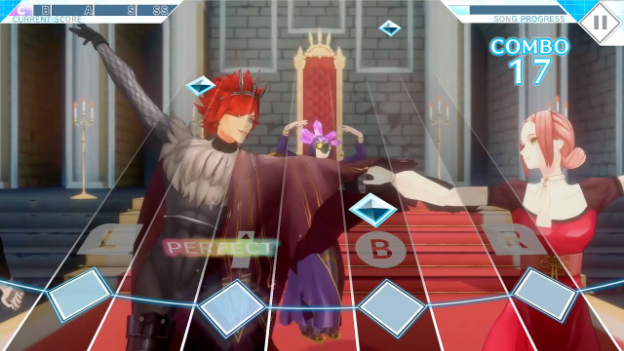
Another aspect that makes Jack Jeanne stand out from other otome games is that it has rhythm game segments. Since the game takes place at a drama school, the characters partake in singing and dancing, both of which take the form of the rhythm game sequences. With singing, you have to just highlight your cursor over the diamond-shaped symbols, and with dancing, you have to press certain buttons in time with both the music and the symbols the second you highlight them. I admit, this is my first real exposure to rhythm games, and I found them to be pretty doable, especially on the easiest difficulty. Plus, you can’t have a game that places a heavy emphasis on music without a good soundtrack to back it up, and thankfully, the soundtrack is one of Jack Jeanne’s biggest highlights. Not just the background music, but the wide variety of songs made for the various plays, all sung (amazingly!) by the seiyuus for not just the LIs, but Kisa’s seiyuu herself. It helps that Sui Ishida took it upon himself to write the lyrics for all the songs and really make sure they were all relevant to not just the in-game plays and their narratives, but the game’s cast of characters and their growth as performers.
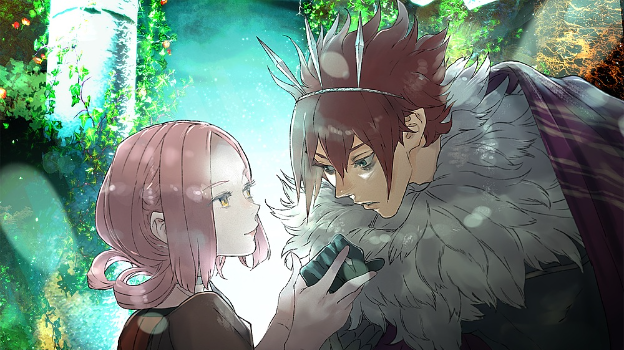
Also, can I just say how happy I am that the game actually bothered to give Kisa a voice actor? Most otome games don’t give their MCs voices because the MC is supposed to be a cipher for the player to insert themselves into so they can immerse themselves when pursuing a game’s love interest. The fact that Jack Jeanne not only actually bothered to give Kisa a voice actor, but made her sing alongside the LIs for any relevant songs cements the fact that she isn’t just a self-insert prop, but the actual protagonist of the story with her own personality and arc. Adding onto this, hot damn, this game really shows off Yuka Terasaki’s range and talent here. Speaking of the characters, they’re also the biggest highlight of Jack Jeanne. While at first they do adhere to your typical bishounen archetypes: The happy-go-lucky sunshine boy, the tsundere, the smart one, the eccentric, and so on, as you progress through both the main route and their individual routes, they get more and more fleshed out, and with Ishida-sensei at the helm, the way he writes all the characters make them feel a bit more nuanced and three-dimensional than your usual otome game fare, even if they don’t reach, say, Naoki Urasawa levels of development. Even several characters, who while not relevant to the narrative, do help to give some flavor and flesh out the game’s setting, what with it being a theater school and all. Not every character gets this treatment (Poor Ichinomae. I may not like his design much, but he really should have been allowed to interact with more people than just Kisa), but it’s still more than most otome games care to give.
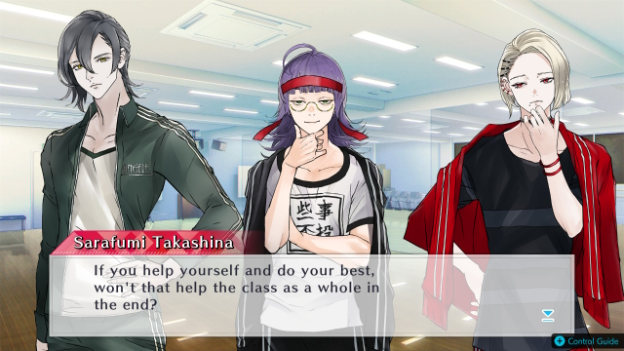
Helping this is that Jack Jeanne as a game is LOOOONG. You know how Digimon Survive’s routes tend to run to about 30-40 hours without skipping? One playthrough of Jack Jeanne alone caps at about 25-30 hours without skipping, and since the game has seven routes with many different endings and over 100 CGs to unlock, the game is NOT short on content. Seriously, I know people whose playthroughs of the game capped at 130 hours going through the entire thing. Ishida-sensei even mentioned that the game has, and I quote, “20 novels” worth of content. That being said, while I appreciate the effort that did go into developing the main cast and most of the side characters, there are some things I feel could have been fleshed out more, like what the characters’ lives are like outside of Univeil. It even leaves several questions and plot threads unanswered, such as: What’s the deal with Mitsuki’s mother and why does she treat him the way she does? What the hell happened to Tsuki in the end (The game never explains this, BTW)? Why did Kai’s relatives not like him and just throw him into an orphanage? Is there something more to Soshiro’s lack of confidence, like a troubled family life or something? What did he do between Kisa moving and their eventual reunion at Univeil? What was Kisa’s life like with Tsuki and the rest of her family before his disappearance? As much as I appreciate what was done with the characters already, I feel like some more details would flesh them out even more and make them more three-dimensional.
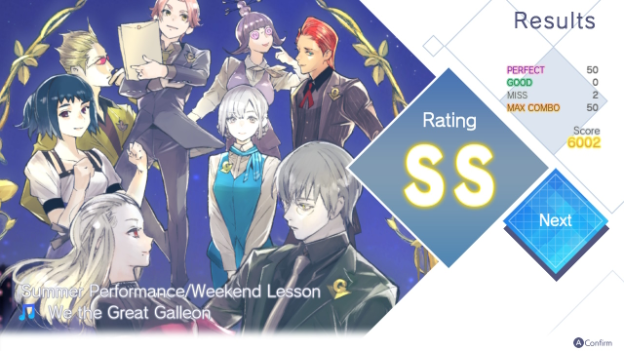
Plus, while I loved pretty much all the cast (Save for Kamiya and Momonashi, who are villains that you’re supposed to hate), not every route hits a home run, though even the worst route is a 7/10 minimum. Out of all the characters’ routes, I found Soshiro’s to be the weakest. I can understand having a character that struggles with a lot of self-confidence issues and insecurity, which is fine, as flaws make a character interesting, and having them deal with their flaws makes for compelling conflict. But Soshiro tends to indulge in his angst way too much, dragging the story down with him, and doesn’t stop angsting even when other characters are also struggling with their own issues and looking to him for support, especially Kisa. Every struggle she winds up having, whenever she tries to get Soshiro’s support, instead of helping her, he makes every issue all about him and makes her feel worse. I really wanted to like Soshiro more than I did. Seriously, Kai has a lot of Soshiro’s problems, but he still tries to support Kisa whenever she’s having issues and doesn’t make everything all about him! Granted, Soshiro does get better, but honestly, I found him to be more tolerable and likeable in every route except his own…and that shouldn’t be. Though even he’s still not as bad as other love interests in other otome games that border on being super toxic and abusive, even with the games romanticizing them and trying to make them out to be super amazing. Gag me. Out of all the routes, Kai’s is my personal favorite.
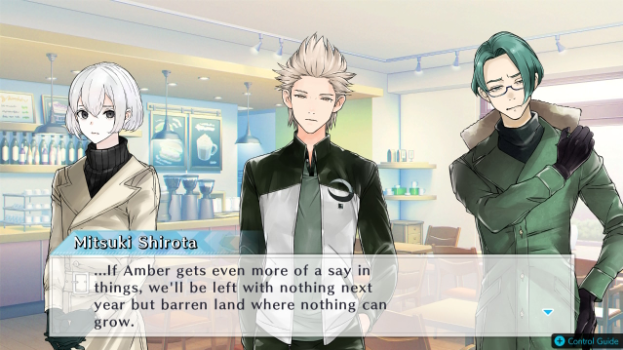
If there’s one thing that Jack Jeanne absolutely nails, its the graphics and artwork. Jack Jeanne has an absolutely beautiful aesthetic, packed with over 100 lusciously drawn/painted CGs that are a feast for the eyes. The visual novel portraits for all the characters are great too, save for some little quirks, and I love that the characters’ clothing and costumes change over the course of the game. The unique portraits they get doing the plays are also very well-designed. The only character I had a problem with was Kisa’s friend Ao, though not because of her design or personality (Though I will say that her voice is kind of annoying), but…this is a personal nitpick, but for some reason, the way her mouth is drawn when its open looks really off. I don’t know what it is, but it just looks weird when she’s talking in her portrait. That’s really the only problem I had with the game’s art style. The 3D dance sequences that come on during the rhythm segments (Only during the actual plays) are well made and have some great, fluid choreography, with their only issue being the occasional bit of clipping. I also like the little in-game music videos that occur during the singing segments, and each one has its own unique art style.
(Oh, and I’m gonna be biased here and say one thing: Fumi is so fucking hot. Seriously, look at this man. I would totally let him seduce me. He is objectively the sexiest character in the game, no cap.)
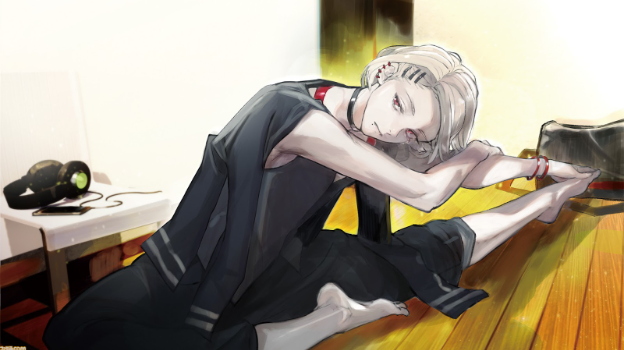
One last thing that admittedly bothered me: Does Univeil have absolutely no concept of auditions in this universe? I mean, the characters audition to get into the school, but when they’re casting for the plays, rather than have the teacher make the students audition for roles in the play, for some reason the playwright does the casting, without any auditions at all. I can only assume this is because the game needs to have all the main characters be prominent and it’d be too hard to have to accommodate NPCs, but…I don’t know. I never participated in any kind of play and my knowledge of theater is limited, but even I know enough about theater that most theater companies or troupes hold auditions so everyone can have a fair shot, and I feel like letting the playwright just auto-cast whoever he wants would just cause problems. Hell, Kokuto casting Soshiro as a nameless ensemble character in the fall performance does just that! I can’t imagine any school just letting a student playwright have free reign in casting people in their plays without auditions. I don’t know if this is a cultural thing in Japan, or wanting to work within the limitations of the game and its narrative, but this just seems odd, and I can’t be the only one who thinks this.

Though the fact that I literally just spent 8-9 paragraphs gushing about an obscure visual novel should tell you that I think Jack Jeanne’s strengths far outweigh its flaws and missteps. There’s a lot of love, passion, and care put into every aspect of the game. One cute detail I noticed is that when you get through the plays in-game, you get to unlock their whole scripts. I do wish it’d be possible for them to be downloaded via a PDF file so whatever theater company or school could put on their own version of the productions in real life, though I doubt that’ll ever happen. I haven’t even gotten through all the routes in the game yet, but Jack Jeanne is certainly an experience, and I’d go so far as to say it’s one of the best visual novels ever made, though there are some I like a little better. It’s packed with mostly loveable characters, an immersive story that really pulls you in, immaculate artwork, an amazing soundtrack, and a ton of replay value.
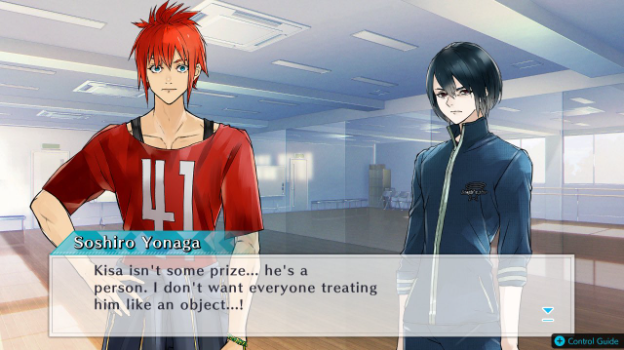
I’ve heard some people criticize the game for not having much in the way of romance, which in their mind means that the game doesn’t dive into it right away. I personally don’t think Jack Jeanne is lacking in romance, as having played through several routes myself, it’s more that Jack Jeanne is much more focused on its main narrative and actually requires you to build chemistry between Kisa and whichever love interest you have her pursue, via activating their character events and raising their required stat. I personally like this approach, as having you actually work towards a romantic relationship makes the romance feel more genuine and earned, rather than just having them dive right into it straight out and have them be strangled by the red string as a result. People might also not like that you have to go through multiple playthroughs just to get all the CGs (The skip option activates once you get through your first playthrough, mitigating this somewhat), and the gameplay can get repetitive after a while. But for me, that’s no reason to skip out on Jack Jeanne.
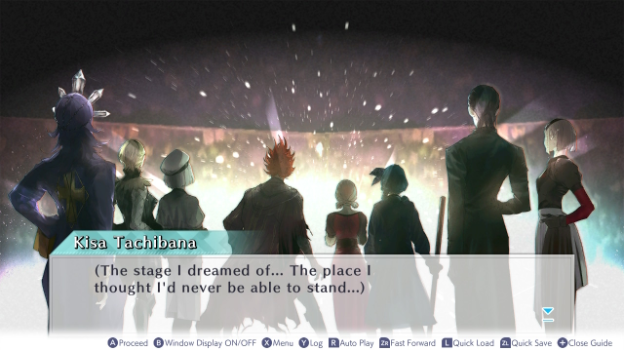
Seriously, if you’re looking for a unique otome game that actually puts effort into everything and stands out from the pack, give Jack Jeanne a shot even if you’re not into visual novels. Physical copies are readily available everywhere, and Aksys Games has some really nice limited editions available on their own website as well. Dammit, Jack Jeanne is so good and just play it!!
